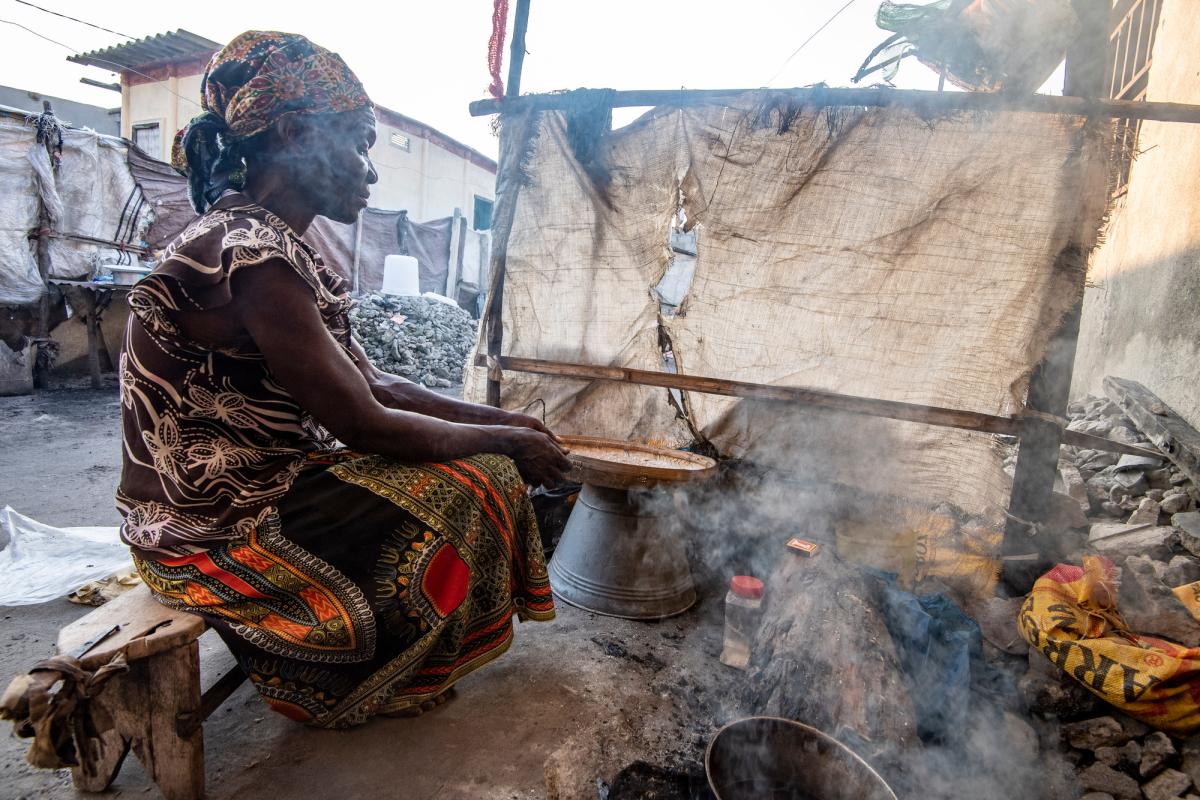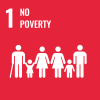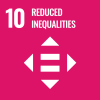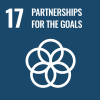
BACKGROUND
In the lead up to the 2023 Sustainable Development Goals (SDG) Summit (18-19 September, New York), the Secretary-General urged all Member States and stakeholders to present forward looking commitments to accelerate sustainable development in the coming years. A total of 39 Member States and 1 non-member observer state submitted 141 commitments via the SDG Summit Acceleration and Accountability Platform. This policy brief reviews these national commitments from the 2023 SDG Summit, focusing on how countries are translating the leaving no one behind (LNoB) concept into different policies across various country settings.
PROFILE OF COUNTRIES COMMITTED TO LNOB
During the 2023 SDG Summit, 31 out of these 40 countries explicitly prioritized advancing the LNoB agenda in their national commitments through specific policy measures or institutional reforms. Of these 31 countries, 20 are middle-income countries (MICs) (65%), 6 are high-income countries (HICs) (19%) and 5 are low-income countries (LICs) (16%) (Figure 1). Proportionally, the MICs seem slightly more inclined to commit to advancing LNoB agenda (20 out of 23 total number of MICs that announced national commitments: 87%) compared to their LIC (5 out of 7: 71%) and HIC (6 out of 10: 60%) counterparts (Figure 1).
In terms of regional breakdown, Africa had the largest number of LNoB-committed countries among the 31 that submitted national commitments (9 out of 12: 75%), followed by Europe (7 out of 11: 64%). Notably, all countries from Latin America and the Caribbean region that announced national commitments prioritized the LNoB agenda (6 out of 6: 100%). This may be attributed to challenges typically faced by MICs, as research notes that Latin America and the Caribbean, being a middle-income region, experiences significant unequal distribution of growth across households. Countries from both Asia and the Pacific (5 out of 6: 83%) and Western Asia (4 out of 5: 80%) also showed a strong emphasis on LNoB in their commitments, all of them being MICs. Due to the small sample size and potential selection bias, however, deriving any definitive regional trends from this analysis is challenging, warranting further research.
DIVERSE POLICY APPROACHES TO LNOB
In the context of 2030 Agenda for Sustainable Development, the ethos of LNoB permeates all 17 SDGs. The national commitments from the 2023 SDG Summit highlighted a diverse range of priority themes, with a significant emphasis on the LNoB agenda. Analyzing these commitments reveals that the policies addressing LNoB largely focus on five interdependent and mutually reinforcing areas including: (i) eradicating poverty; (ii) enhancing human capital; (iii) addressing uneven access to basic necessities; (iv) improving decision-making process on sustainable development; and (v) ensuring no country or locality is left behind.
(i) Policies to eradicate poverty
To prioritize scaling up poverty eradication, 15 countries presented new benchmarks, with 13 specifying a poverty rate target for 2027. Three countries targeted a 30-50% rate, nine targeted 10-30%; one targeted below 10%; and no country targeted a 0% rate.
Among the most ambitious, Sierra Leone is dedicated to reducing absolute poverty from 57% to 35%; extreme poverty from 11% to 5%; and multidimensional poverty from 65% to 50% by 2027, while increasing the income share of the bottom 20% from 8.1 % to 8.6%. Lesotho aims to reduce poverty from 50% in 2016/17 to 44% in 2026/27 by enhancing income growth for the bottom 40% and addressing gender equality, infrastructure development and public sector capacities. Uganda commits to transitioning from the informal to the formal economy to increase incomes, improve quality of life and eradicate poverty at the household level.
Additionally, of 15 countries indicating their poverty eradication benchmarks, five countries specified their target Gini index, indicating specific, time-bound national efforts to reduce inequality.
(ii) Policies to enhance human capital
Many countries dedicated to the LNoB agenda have introduced new education policies to empower those living in poverty and vulnerable situations, addressing the issues of marginalization and discrimination. Evidence shows that a 1 % increase in public funding for education in developing countries could lift 35 million of the 731 million primary-aged children out of learning poverty. In light of this, Montenegro commits to raising its education budget from 9% to 13%.
A common LNoB measure in the education sector is shifting to a competency-based curriculum that responds to the needs of groups in vulnerable situations to enhance their educational attainment. For instance, Egypt mandates the development of curricula that address the needs of children with disabilities; build teachers’ capacities for inclusive education strategies; and considers the special needs for refugees and asylum seekers, including those with disabilities. Other measures include scaling up holistic youth skills development including digital skills; increasing youth participation in decision-making processes; enhancing transparency and autonomy in educational funding; and utilizing technologies where appropriate (e.g. assistive technologies for persons with disabilities) to support at-risk learners, among others.
Countries also committed to labour policy reforms to: actively promote employment and decent work for people living in vulnerable situations; ensure equal pay for equal work for women; increase women’s participation in underrepresented sectors; support micro, small, and medium enterprises (MSMEs) in functional global value chains (GVCs); reduce the percentage of youth aged 15 to 24 who are neither employed nor in education (NEET); transition to a formal economy; maintain an acceptable wage-to-pension ratio; and provide employability/skill development training (Box 1).
(iii) Policies to address uneven access to basic necessities
Several countries have developed policies to ensure those at risk of being farthest left behind have equal access to basic necessities such as food, water, sanitation, energy and social protection.
For instance, Honduras’s National School Feeding Program, led by the President, aims to ensure equal access to food for children in the poorest areas, preventing school dropout and combating socio-economic inequality. Kyrgyzstan plans 46 water management projects to irrigate 67,000 hectares of new land and increase water availability, promoting equal access to water for all, including those in vulnerable situations. Uzbekistan is improving water efficiency by 25% to ensure access to clean water and sanitation for children in all preschools. Bangladesh targets 100% access to clean drinking water and sanitation by 2030 and aims to provide equal access to energy for all by reducing primary energy consumption per GDP by 20% by 2030.
Chile and Egypt are focused on enhancing access to universal health coverage, primary health care and rural health facilities for all; Belize plans to approve a costed Social Protection Strategy in 2024, including a social protection floor and accompanying institutional mechanisms.
(iv) Policies to improve decision-making process in support of LNoB
Eleven countries are implementing measures to enhance decision-making processes around sustainable development to advance the LNoB agenda. These efforts typically include establishing multi-stakeholder councils and platforms to ensure inclusive participation and foster accountability mechanisms; and improving the transparency and efficiency of public administration procedures, among others.
Moreover, ten countries are adopting data-driven approaches to collect and disaggregate data, promoting evidence-based decision-making in support of LNoB (Box 2). They aim to improve public access to data infrastructures and enhance monitoring and evaluation systems, including citizen-initiated mechanisms. For example, Moldova’s policy reform seeks to enhance public access to information and feedback mechanisms, enabling a demand-driven monitoring and governance system. These efforts address poverty, inequality and marginalization while building a more inclusive and transparent accountability system.
Research indicates that big data can detect and reach those in vulnerable situations, often overlooked by conventional statistical methods. The private sector plays a key role in data partnerships to enhance big data infrastructure for the LNoB agenda, while addressing privacy concerns. In this context, Uganda’s new inclusive Big Data Utilization Strategy (BDUS) requires all government and private organizations to implement its data security and privacy protection measures.
According to the 2022 UN E-Government Survey, few countries have recent evidence of e-consultations with groups in vulnerable situations, and even fewer show that public input is considered in policy decisions. This highlights the need to proactively reach out to those in vulnerable situations with tailored e-services and to use e-participation mechanisms as a complement, not a replacement, for traditional public participation.
(v) Policies to leave no country or locality behind
Development cooperation plays a unique role in advancing the LNoB agenda by aligning with national LNoB strategies of developing countries and prioritizing the countries and localities with the weakest capacities. During the 2023 SDG Summit, both developed and developing countries, articulated their commitments to enhancing cooperation and partnerships to support the capacities of those farthest left behind, including in the forms of official development assistance (ODA), development guarantees, climate finance and South-South/triangular cooperation, among others (Box 3).
Developed countries can support developing countries by changing policies to create enabling rules for a more equitable distribution of development opportunities, going beyond simply transferring money or knowledge. Germany aims to enhance policy coherence and foster trade diversification and resilience while mitigating the ‘spillover’ effects of its trade policies in developing countries. Germany supports its trade partners in adapting to and complying with evolving legal requirements within its national policy frameworks. These policies align with Germany’s consistent emphasis on trade facilitation as a primary focus of their aid-for-trade (AfT) strategies.
At the sub-national level, 21 countries are prioritizing the strengthening of local ownership and capacities to ensure no locality is left behind. Common strategies include bolstering the fiscal capacities of local governments. For instance, Bangladesh has developed a set of “39+1” national priority targets (NPTs) for LNoB agenda; the 39 indicators were identified as crucial to the local context, while one additional indicator was selected by each local administrative unit through workshops to ensure inclusivity.
Chile is planning to allocate 390 billion pesos from mining royalties to 89% of its neediest communities while Egypt is implementing structured funding formula for public investments. United Kingdom is supporting the local tax systems of developing countries through enhanced development cooperation.
Other strategies focus on strengthening human resources capacity through training programmes for municipalities, local committees and residents; enhancing data capacity to include those in vulnerable situations at local level; establishing multi-stakeholder local coordination mechanisms for LNoB; supporting sustainable agriculture through development cooperation; and promoting inclusive disaster preparedness and resilience at grassroots level.
LNOB: WHAT IT TAKES TO ACHIEVE THE SDGS
Failing to uphold the LNoB principle will jeopardize achieving the SDGs. Although it requires more time, resources and deliberate policy interventions, research suggests that focusing on marginalized groups can lead to better and sustainable development results. For instance, a recent UNICEF report indicates that investing USD 1 million in the health of the most disadvantaged children prevents nearly twice as many deaths as the same investment in better-off children. Prioritizing populations in vulnerable situations also strengthens community relationships, reduces disputes, enhances social cohesion and fosters a greater sense of belonging and participation among everyone.
All actors must view LNoB as a pathway to accelerate sustainable development, not a political burden. As the African proverb says, “If you want to go fast, go alone; if you want to go far, go together”. Embracing this perspective and uniting our efforts can lead to a more sustainable future for all.
 Welcome to the United Nations
Welcome to the United Nations


